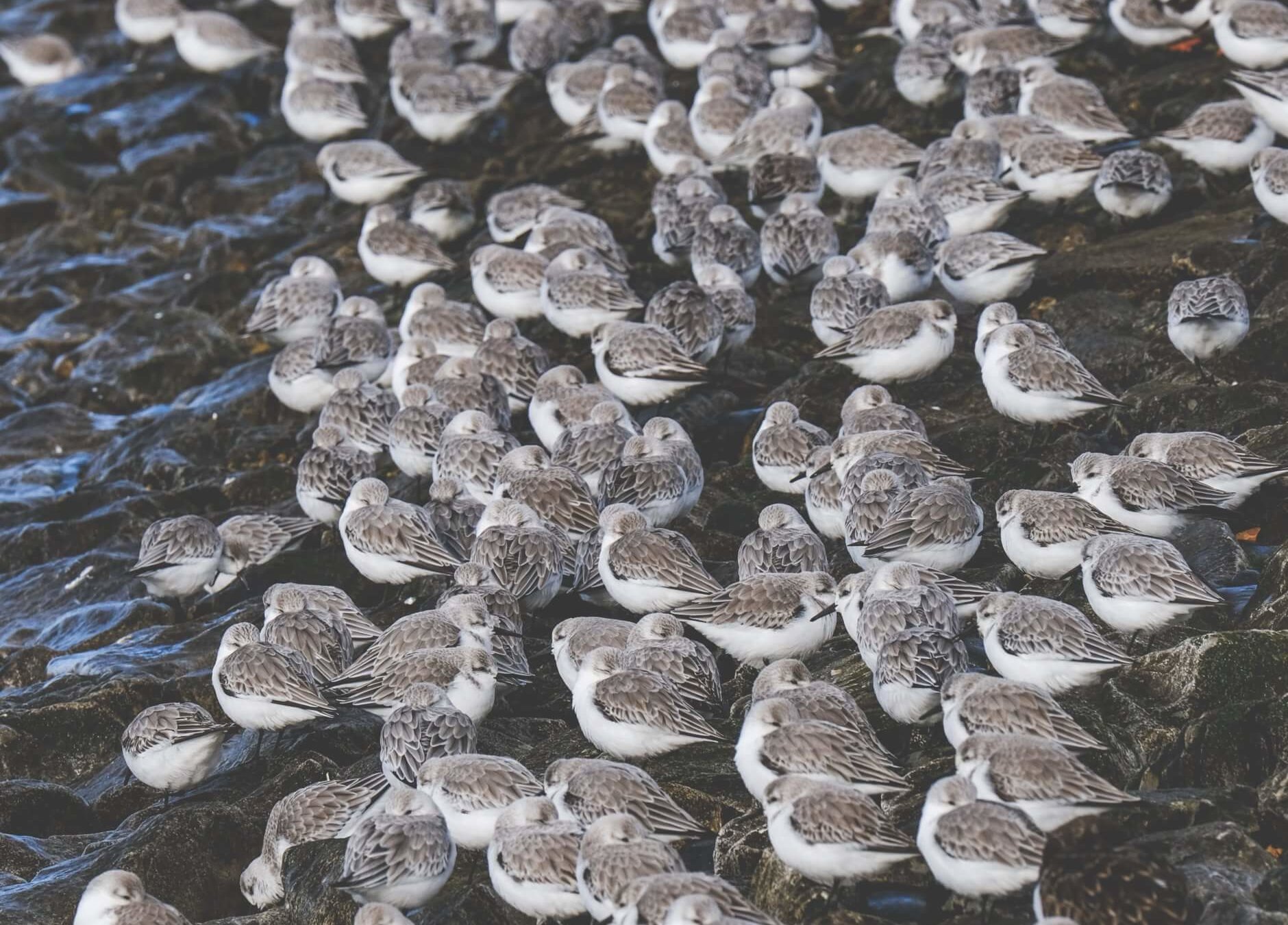A key aspect of being successful in making your science matter beyond the ivory tower is building relationships and knowing how to strategically navigate networks of people. Ultimately, these relationships are not about sharing data, but instead about shared connections among people. It is the trust and goodwill built up over time with colleagues, and even policymakers or journalists, which opens doors to new opportunities. But making these connections can be tricky and can often involve tough decisions about personal-professional boundaries.
I know this is something I really struggled with as a scientist and, judging by conversations with other scientists, I am far from being alone. In fact, I was overwhelmed by the diversity and depth of responses I received from scientist colleagues in response to a question on Facebook:
Where does your personal-professional comfort zone lie and what are your strategies for navigating tricky situations, either in person or via social media?
Although this topic is broad, the contexts in which the responders felt they most often have to navigate this boundary fit roughly in the categories below:
Personal/professional relationships can sometimes be tricky and feel like you’re walking a fine line. Ultimately it’s important to do what feels comfortable and appropriate for you. Photo courtesy of Nicoló Paternoster via Flickr.
SOCIAL MEDIA. Almost without exception, the responses I received included some mention of social media. Most have a strict policy of not friending students or advisees on Facebook, but boundaries with former students and colleagues are more fluid. One scientist’s metric on Facebook is “do I want this person to know my kids’ names?” There’s also the question of the filter vs. firewall approach Liz Neeley talked about in this Nature piece. Some people feel comfortable using tools like Google+ circles and Facebook privacy settings to decide who gets to see what, while others tend to divide up platforms (e.g., Twitter for work and Facebook for friends and family.) Having a blog as a scientist can make things even trickier in terms of deciding how much personal content to include. Referring to a recent post on her decision to leave academia to become a stay-at-home parent, one colleague had an explicit reason for sharing her story: “I wrote that and posted it publicly in part because I think our modern workaholic society would improve if both men and women were more open about their desires and choices in work/life balance.” Note: For more on the topic of social media for scientists start here.
IN THE WORKPLACE. Many of the responses I received from postdocs and faculty focused on navigating personal-professional boundaries with students. Beyond social media, this includes everything from deciding on a preferred form of address (e.g., Dr. vs. first name) to knowing how much and in what ways to help when students are having a personal crisis. However, strong personal-professional boundaries can sometimes be challenging when a faculty scientist might be closer to some lab members than others or when even consistent boundaries can make early career scientists feel disconnected from, and maybe even disrespected by, more senior scientists. Interestingly, one postdoc also talked about being in charge as an opportunity to enforce personal-professional boundaries in a group setting, “If you’ve worked yourself into a position of authority, feel free to use it to clamp down on people saying inappropriate things to other people in the group.” Cultural and institutional norms can also affect the levels of comfort in how open scientists feel they can be with colleagues and students.
PROFESSIONAL NETWORKING EVENTS. Trying to establish new connections with peers at a conference or other networking opportunities also provide tricky territory for balancing the personal with professional. Although the desire to network is an integral part of achieving professional goals, it often seems like the more personal aspects of a conversation are what make someone stick out in your memory later. Perhaps you enjoy the same sport, recently read the same book, or have a passion for cooking. Many people I know stick to the old adage of avoiding mention of religion or politics in conversations with professional colleagues, but beyond that many scientists seem to make judgments based on the information they can gather in context. As one scientist recommended, “it’s best to first do a quick survey of the crowd and make sure you’re not going to go beyond anyone’s comfort zone.”
OUTREACH. Scientists also confront the issue of how much to reveal about one’s personal life in an effort to make research more relevant to a broader audience. One faculty member whose position is largely focused on undergraduate teaching said, “I do share funny family stories with my students because I have found that it helps them connect with me and see me as a person.” This can also be key for scientists when being interviewed by a journalist. Sometimes the “story behind the story” is what makes something more compelling for the journalist, their editor, and their audience. Again, how much of the personal story a scientist feels comfortable sharing depends on what feels right to that individual.
One thread that runs through all of these bins is deciding how much time and energy to allocate to personal vs. professional endeavors. Setting mental boundaries between work and personal time can be even more difficult, as one faculty scientist put it, “because I love what I do and because it takes an inordinate amount of mental energy, I find myself floating along in ‘science world’ in my head.” No matter the context, it’s clear that navigating personal-professional boundaries for scientists is a complicated aspect of the job. One researcher summarized, “you have to decide what boundaries you want to set, then decide where to draw the line. After doing so, you then have to realize that the lines will shift, depending on circumstances, situations, and your own progression along the academic ladder.”
So what comes to your mind when you think of personal-professional boundaries? And, how do you approach navigating the challenges outlined above?



